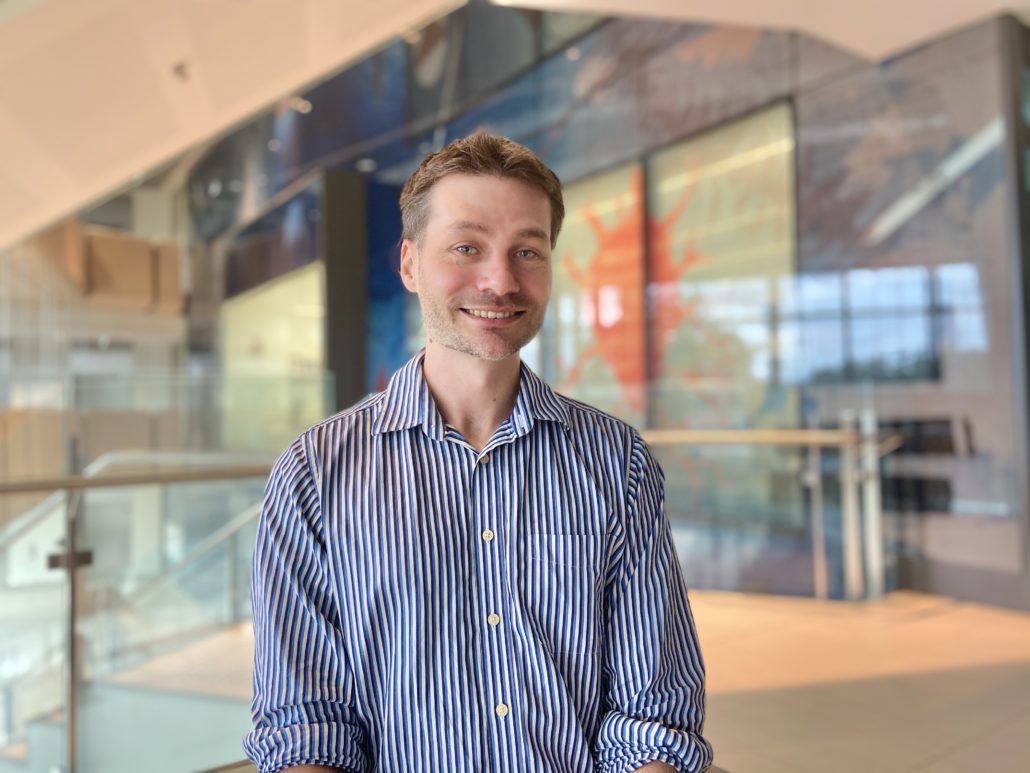Ahead of race day this Sunday 29 August, we sat down with Dr Justin Chapman from the QIMR Berghofer Medical Research Institute to discuss his research and the benefits of exercise on our mental health.
Dr Chapman is a researcher in QIMR Berghofer’s Mental Health Program, a project officer with the Department of Health and a program manager with PCYC Queensland.
Dr Chapman will participate in this year’s The Sunday Mail Transurban Bridge to Brisbane with the QIMR Berghofer team to raise funds for medical research in Queensland.
Now let’s speak to Justin –
What inspired you to move from PT to mental health research?
After completing my undergraduate degree in physics and mathematics, I decided to change my career trajectory and follow my passion for sports and exercise. As a personal trainer, I established exercise programs for people with mental illness, and I was privileged to witness the impact that something as simple as personalised exercise support can have on someone’s wellbeing, even if they have many other challenges to deal with. I completed my doctorate in measuring and influencing physical activity in people with mental illness in 2015, and have since been applying these skills to increase our knowledge in how to help people with mental illness get more physically active, and improve health service practice in this area.
Tell us about your project and what you are hoping to achieve?
People with mental illness are at higher risk for preventable diseases such as cardiovascular disease and diabetes. The co-occurrence of physical and mental conditions is related to worse outcomes and shortened life expectancy. We know that exercise can prevent disease and improve the quality of life in people with mental illness, but what we need is studies on the effectiveness of implementing exercise programs into routine mental health service practice. This is a vital step for the research field, because without studies evidencing the translation of this knowledge into practice, we may never realise the systemic change in helping people with mental health issues make positive changes to improve their health and wellbeing. This research will ultimately lead to greater health equality.
What you have discovered so far and the next stage you are working towards?
So far my research has shown that people with mental illness – including severe mental illnesses such as schizophrenia – can make positive changes in physical activity if supported appropriately, and this leads to reduced depression and psychological distress, and improvements in quality of life, recovery, motivation, and fitness. By ‘appropriate’ support, I mean that programs need to be offered in welcoming environments, in groups to promote social connection, and facilitated by exercise professionals who understand mental health challenges and can connect with people along the physical activity journey. Partnerships with community-focused organisations have been essential for this work: PCYC Queensland and QIMR Berghofer have partnered for the last 5 years to increase the availability of, and research into, these programs for people with mental illness. The next stage for this work is to do a state-wide trial of integrating exercise physiologists into clinical teams within the mental health service and evaluating the impact on metabolic health and quality of life of patients. Research on this scale has the potential to make the greatest impact but is also expensive, so we are looking for philanthropic and industry partners interested in bringing this work into reality.
Do you have any insights into the benefits of fitness on mental health?
Fitness is great for health because it reduces the risk of many chronic diseases, and improves longevity and physical and mental functioning throughout the lifespan. What I’m mainly interested in is the behaviour that leads to these improvements. For some, physical activity and exercise is a habit that takes more effort to stop than to maintain. But for many, it’s a continual effort to squeeze physical activity into the demands of modern life. Our motivation to exercise is determined by a complex mix of our knowledge and attitudes, social norms and identity, as well as our physiological make-up and the environment in which we live. The process through which physical activity becomes a priority in our lives which then stimulates self-evaluation and other life changes is fascinating to me, and I believe that personalised support on this journey should be available to everyone – regardless of disadvantage, and without discrimination.
Haven’t signed up to this year’s The Sunday Mail Transurban Bridge to Brisbane yet? Click here to secure your spot at the starting line!

